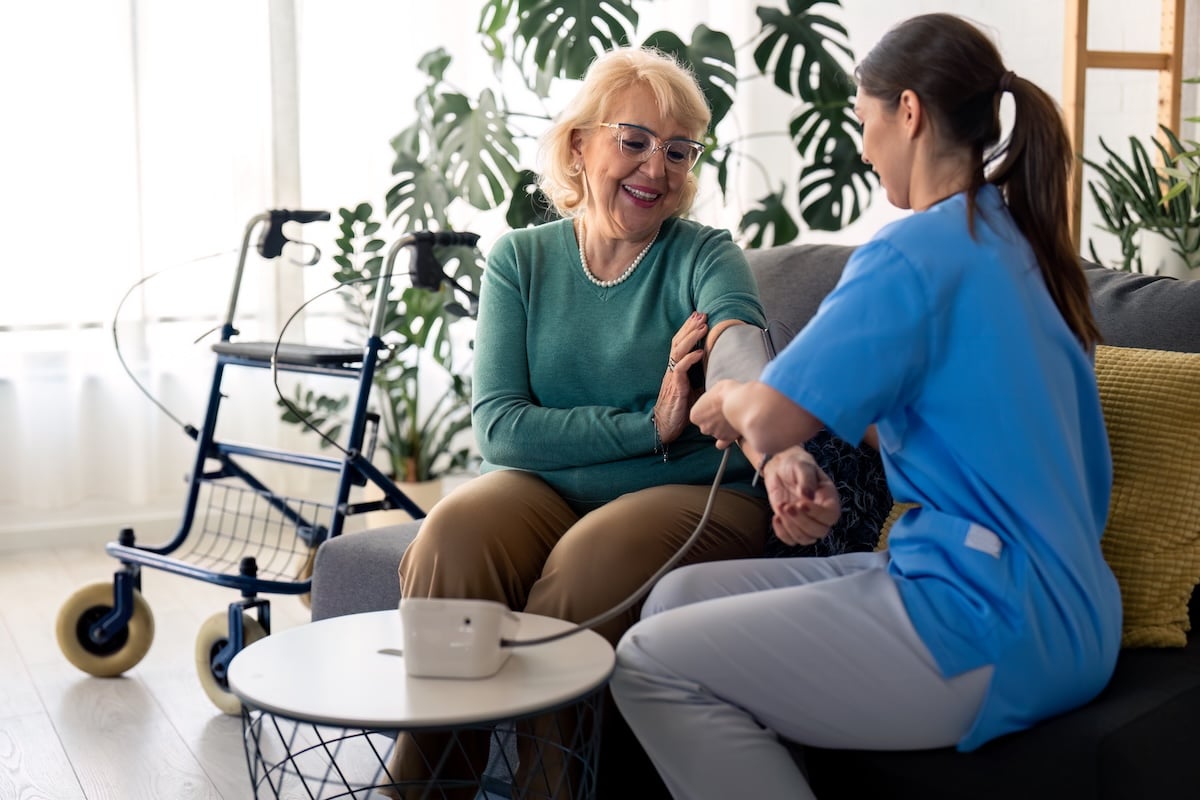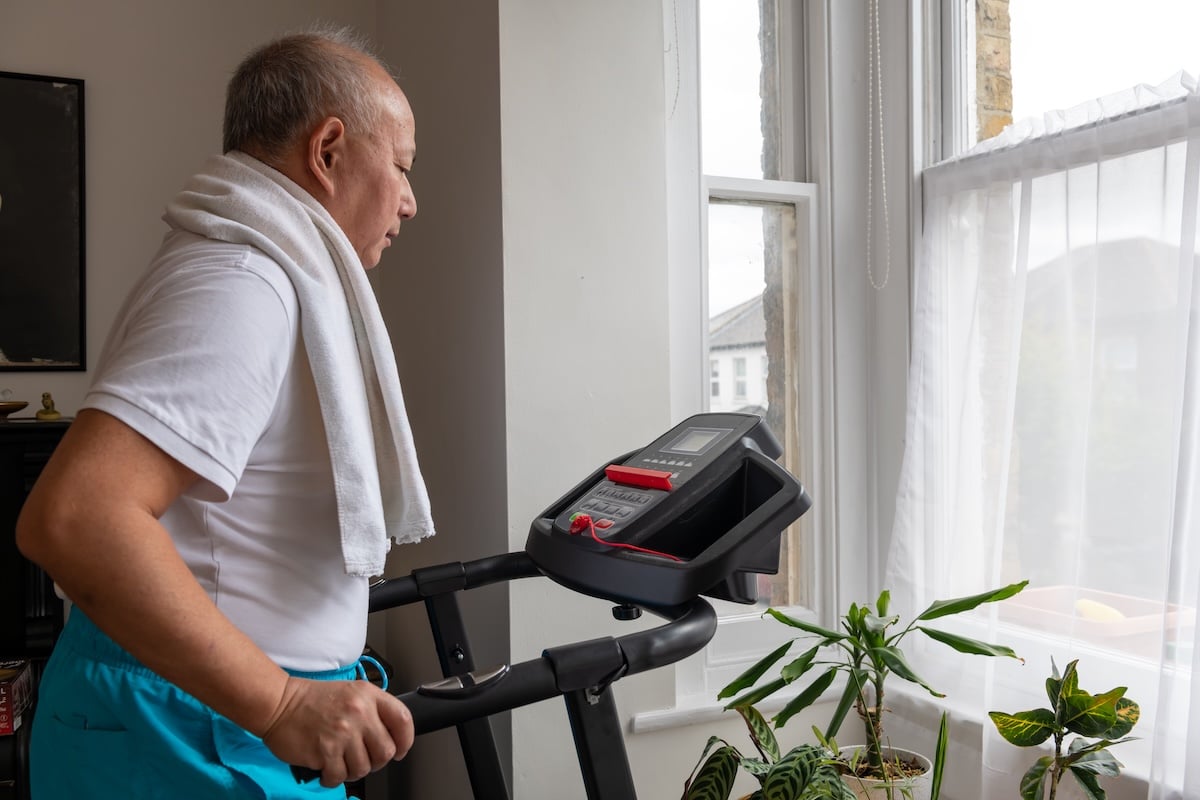A study by the Centers for Disease Control and Prevention and other scientists published on WebMD [1] confirmed that since 1993, the incidence of shingles has nearly doubled in the adult U.S. population. It has become a growing concern, especially among older adults from age 50 and above.
A study published by The Gerontologist [2] classifies the prevalence of shingles among older adults as follows: 54-59 years (9.7%), 60-64 years (10.7%), 65-69 years (12.7%), 70-74 years (14.9%), 75-79 years (17.1%), 80-84 years (20.4%), 85-89 years (22.9%), and 90 years and older (25.8%).
As a child, you probably had chickenpox—the itchy, red rash that spread all over your skin and likely forced you to stay home from school and other activities. Once the rash faded and you felt better, you probably thought you were done with the virus.
But that’s not the case. After the symptoms of chickenpox subside, the virus remains dormant in your body and nervous system [3]. If it receives a signal to reactivate, you will get shingles and a painful blistering rash.
The National Institute on Aging [4] states that one in three people in the United States will develop shingles in their lifetime, especially if they've once had chickenpox.
So, what exactly is shingles and how can you protect yourself and your loved ones from a shingles outbreak?
What is shingles?
Shingles, also known as herpes zoster, is a viral infection caused by the varicella-zoster virus. This is the same virus that causes chickenpox. After a person recovers from chickenpox, the virus can remain dormant in the nerve tissue near the spinal cord and brain.
Shingles occurs when the varicella-zoster virus reactivates later in life, typically many years after the initial chickenpox infection. It is not fully understood why the virus reactivates, but it is thought to be linked to a weakened immune system due to factors such as aging, stress, illness, or certain medications.
What are the symptoms of shingles?
The symptoms of shingles can vary from person to person, but they typically involve a painful rash and other associated sensations. According to Medline Plus [5], some of the symptoms you should look out for include the following:
-
Pain: Shingles often begins with prolonged nerve pain (postherpetic neuralgia), which can be intense or sharp. The pain is usually localized and may precede the appearance of any visible rash. It is often described as a burning, tingling, or shooting sensation.
-
Rash: A rash is a hallmark symptom of shingles. It typically appears as a band or strip of red, inflamed skin with clusters of fluid-filled blisters. The rash usually occurs on one side of the body, following the path of a nerve. Common areas affected include the torso, waistline, face, or scalp.
-
Itching and Tingling: Before the rash develops, you may experience itching, tingling, or heightened sensitivity in the affected area.
-
Blisters: The rash progresses to the formation of small, fluid-filled blisters. These blisters are similar in appearance to those seen in chickenpox. Over time, the blisters may break open, ooze, and form crusts.
-
Painful Sensations: The affected area may be sensitive to touch and cause pain, even with light pressure. The pain can range from mild to severe, and it may persist even after the rash has healed.
-
Flu-Like Symptoms: Some people with shingles may experience flu-like symptoms such as fever, headache, fatigue, and general malaise.
Shingles can affect different parts of the body, including the eyes, ears, and internal organs. When shingles occurs in these areas, additional symptoms specific to those regions may be present, such as eye redness, vision changes, ear pain, or difficulty with balance.
If you think you may have shingles or are experiencing any of these symptoms, it is advisable to seek medical attention. Early diagnosis and treatment can help manage symptoms, reduce complications, and promote healing.
How Can I Protect Myself Against Shingles?
Since the virus is already inside your body, it may seem like little can be done to protect yourself from developing shingles, but there is something you can do. To protect yourself against shingles, there are a few key measures you can take:
1. Get Vaccinated Against Shingles
The most effective way to protect yourself from shingles is to get vaccinated, according to the CDC [6]. The shingles vaccine is recommended for people from the age of 50 and older, even if you have had shingles before or have had chickenpox (varicella).
There are different types of shingles vaccines available, such as the herpes zoster vaccine (Zostavax) and the recombinant zoster vaccine (Shingrix vaccine), which can be taken between two to six months apart.
These vaccines are crucial for people in the United States, even if you've never had chickenpox, as close contact with someone who has shingles or chickenpox can get you infected since they're both caused by the same virus.
2. Maintain a Healthy Immune System
A strong immune system can help reduce the risk of shingles infection. Maintain a healthy lifestyle by eating a balanced diet, exercising regularly, getting sufficient sleep, and managing stress.
If you have any underlying medical conditions, like human immunodeficiency virus (HIV) or any autoimmune diseases like cancer, or take medications that may weaken your immune system, discuss them with your healthcare provider to ensure appropriate management.
3. Practice Good Hygiene
Shingles is caused by varicella zoster, a virus that can be spread to individuals who have not had chickenpox or the vaccine. If you have an active shingles rash, avoid close contact with individuals who have not had chickenpox or the vaccine, particularly those who have weakened immune systems or are pregnant.
To prevent secondary bacterial infections, keep the shingles rash clean and dry. Wash the affected area gently with mild soap and water and pat it dry. Avoid scratching or picking at the blisters, as this can prolong healing and increase the risk of infection.
4. Seek Early Treatment
If you suspect you may develop shingles or experience symptoms such as pain, rash, or tingling, seek medical attention promptly. It's important to contact a health care provider as soon as possible, as early diagnosis and treatment can help manage symptoms, reduce the risk of complications, and prevent the spread of the virus to others.
Remember that shingles can still occur even with preventive measures in place, but vaccination and maintaining a healthy immune system can significantly reduce the risk and severity of the infection.
Get the two-dose vaccine to boost your immune system, reducing the likelihood of developing shingles [7]. If you do develop the disease, having the vaccine can shorten its duration and make the symptoms less severe. If you have not had chickenpox, you should not get the shingles vaccine but instead get the chickenpox vaccine.
What Should You Do if You Think You Have Shingles?
If you think you have shingles, see your doctor within 72 hours of developing a rash [8]. Your doctor may prescribe anti-viral, steroids, or pain medications to help. Keep the rash clean and avoid scratching or picking at it.
While you can’t avoid catching the virus that causes shingles—unless you’ve not had the chickenpox—taking steps to stay healthy like getting enough rest, managing stress, eating a healthy diet, and getting the shingles vaccine can lessen the chances of experiencing a severe shingles flair.
Is Shingles Contagious?
Shingles itself is not directly contagious in the sense that it cannot be transmitted from person to person through casual contact. However, the varicella-zoster virus that causes shingles can be transmitted to individuals who have not had chickenpox or the varicella vaccine.
If you have an active shingles rash, the virus can be spread through direct contact with the fluid-filled blisters. If a person who has never had chickenpox or the vaccine comes into direct contact with the fluid from the shingles blisters, they can potentially develop chickenpox, not shingles.
Once the shingles rash crusts over and the blisters have healed, the risk of transmission decreases significantly. However, it's still possible, albeit rare, for someone to contract the varicella-zoster virus from direct contact with the shingles rash during this stage.













